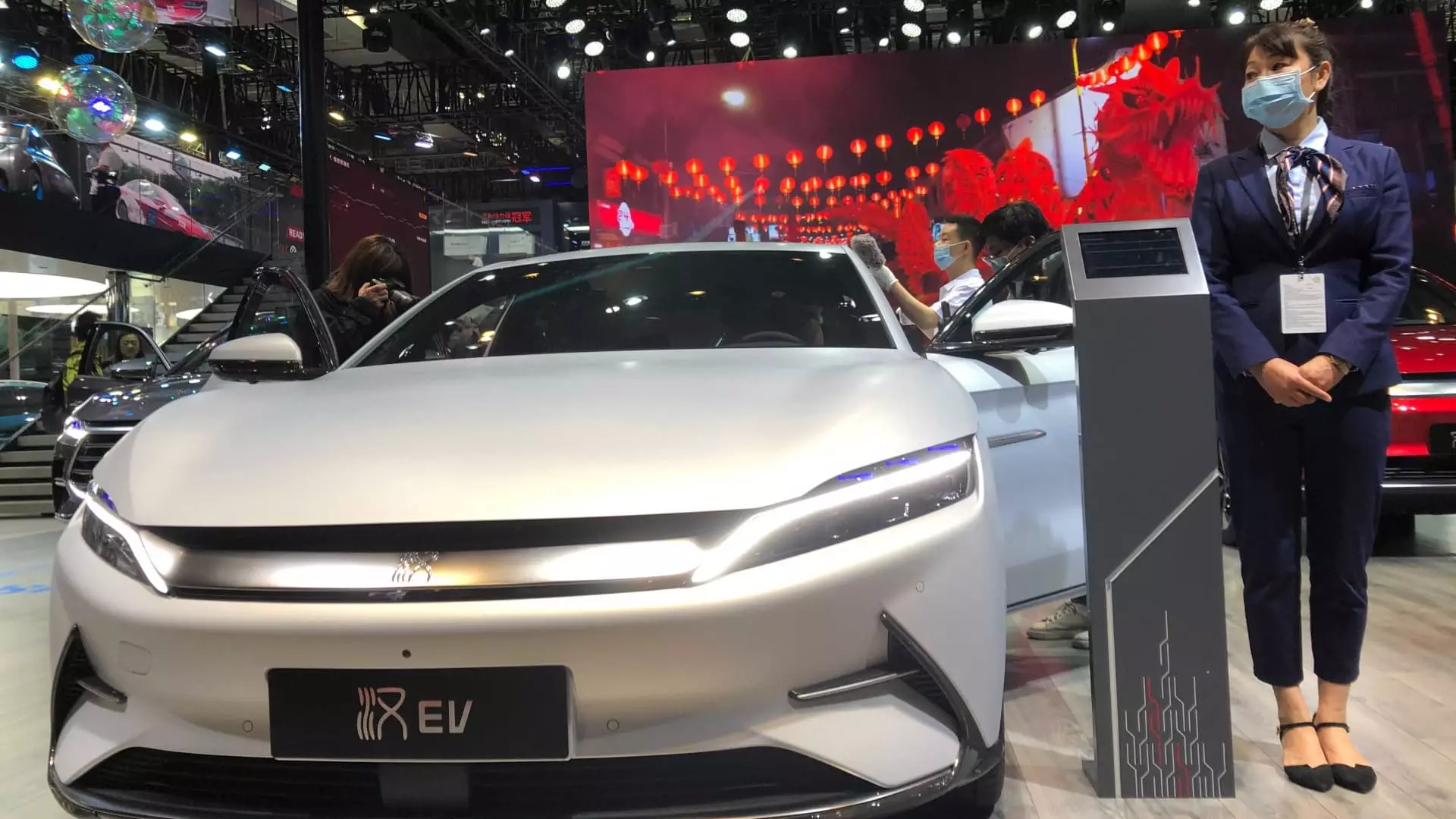The battle for dominance in China’s electric car market is intensifying, with Tesla making significant price cuts on its vehicles. Analyzing the market, U.S.-based firm JL Warren Capital found that Tesla lowered the prices of its Model 3 and Model Y by 6% and 11% respectively compared to December last year. This move puts Tesla ahead of its Chinese competitor, BYD, whose flagship Han sedan only experienced a 5% price decrease during the same period.
Both Tesla and BYD target the premium electric car segment, with their cars selling above 200,000 yuan ($28,000). While BYD offers more affordable options in its lineup, the Han competes directly with Tesla’s models in terms of pricing. By offering more significant price reductions, Tesla seems to be gaining an advantage over its Chinese counterpart.
Discounts and Promotions
The report from JL Warren Capital highlights BYD’s increased sales promotions throughout the year. The company offered double-digit discounts of up to 17% on some of its mass-market models. These aggressive promotions aim to stimulate sell-through and achieve sales targets. However, it appears that Chinese consumers are more focused on upfront pricing rather than considering the long-term value or residual values of their vehicles.
While Nio initially attempted to avoid engaging in a price war, the high-end electric car startup also had to reduce its prices this year. The competition in China’s electric car market is fierce as automakers strive to capture a larger share of the booming industry. HSBC analysts note that price competition in China is more severe than in the EU or the US, possibly due to consumers’ emphasis on upfront pricing rather than long-term value.
China’s government support has contributed to the rapid growth of the electric car market, with new energy vehicles accounting for over one-third of new passenger car sales. JL Warren Capital’s CEO, Junheng Li, predicts that the penetration rate of new energy vehicles will reach 40% next year, accompanied by a 20% increase in electric car sales. While this growth is significant, it represents a slowdown compared to the 35% increase observed in 2023.
Challenges and the Road Ahead
Li highlights that among the 13 major electric vehicle manufacturers in China, only Tesla and Li Auto are expected to meet their sales targets for the year. This observation indicates that competition in China’s auto market is reaching new heights, potentially leading to increased industry waste. As automakers vie for market share, they may resort to aggressive pricing strategies and discounts, which could impact their profitability in the long run.
Tesla’s price cuts have positioned the company as a frontrunner in China’s electric car market. With increased competition and government support, the industry continues to grow rapidly. However, automakers face challenges in meeting ambitious sales targets and navigating the price war landscape. As the world’s largest auto market, China remains a critical battleground for electric car manufacturers seeking dominance in the new era of sustainable transportation.


Leave a Reply